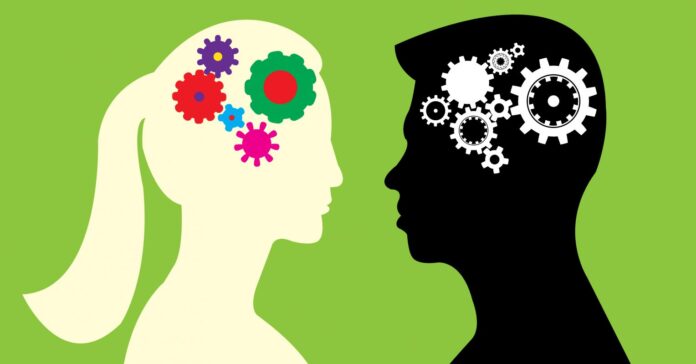Many of us are confused about the difference between STI and STD diseases. Right? STI and STD is a common term in society and increases confusion. However, there is no significant difference between STI and STD diseases. These are the two standard terms healthcare providers use to describe patient conditions.
If you also have the same confusion and want clarification, this guide is for you. Here we will share the common differences between STI and STD diseases.
So let’s dive into it.
Difference between STI vs. STD
STD is an abbreviation for sexually transmitted disease, and STI is the abbreviation for sexually transmitted infection. So if you are using any of these terms, you are talking about the same thing.
Infections usually pass from one person to another through sexual contact. But the basis of infection in a person is when a sexually transmitted virus in the body causes the infection. However, there are also different names for these infections over the year, like the clap and the drip. However, sexually transmitted infection is a new term that helps healthcare providers o describe the condition effectively. Infection is more understandable than a disease caused by a sexually transmitted virus. Those who catch STDs or STIs are easily get rejected when dating affairs are involved, and they are so called “Positive Singles”.
Sexually transmitted infection
A sexually transmitted infection or widespread infection happens in the body when viruses or bacteria enter the body and weaken the immune system. The infections become a disease when it starts showing symptoms; you need to fight them through medications. The infection leads to illness and starts damaging the body parts. (Click to get more support from free Herpes support groups)
So the infection later becomes a disease by showing visible signs in your body. It also happens that STIs will never convert into a disease stage, and we will not know about it for years. Keep in mind that STIs will not cause the symptoms and recover through the strong immune system in the body. It will not cause long-term effects on your body. But it is also mandatory to remember that the sexually transmitted infection can pass to other people through sexual contact.
Conversely, sexually transmitted disease is scarier than infection as they can cause more harm.
Sexually transmitted disease
Sexually transmitted disease or STD is a commonly used term in healthcare centers. Moreover, patients also use it to search for their causes and symptoms on the internet. So doctors and patients will start using the term STD as we all understand it better than STI, which is the most dangerous. Sex educators and healthcare providers now start giving awareness to patients by using the term STI.
However, it doesn’t matter what term we use to describe the situation, but both are the same. STD and STI represent sexually transmitted diseases or infections by passing infection from one person to another.
If you also have a positive diagnosis of STI or STD, then ensure to take medications according to it. We hope this guide will help you understand both terms, STI vs. STD.
You can also get info and knowledge on positive singles and a lot more.
Read Also
- The Role of Ingredients in Your Skincare: What to Look ForSkincare works best when you understand what goes into the products you use daily. Ingredients form the foundation of every formula and determine how the skin reacts over time. Each cream, cleanser, or serum has its own role, determined by its ingredients. Learning what to look for helps you pick products that help skin and… Read more: The Role of Ingredients in Your Skincare: What to Look For
- Your Guide to Finding a Trusted DentistChoosing the right dentist in Sandgate or your area is crucial for maintaining good oral health and achieving a confident smile. With countless dental practices to choose from, patients may find the task daunting. Data from the American Dental Association indicates that there are over 200,000 practicing dentists in the United States, highlighting the importance… Read more: Your Guide to Finding a Trusted Dentist
- Achieving a Defined, Balanced Facial Contour in SingaporeA well-defined jawline and a gently tapered lower face — commonly referred to as a V-shaped face — is a look many people aspire to. In Singapore’s beauty and aesthetic scene, treatments that help refine facial contours have grown in popularity as more individuals seek subtle, natural enhancements that boost confidence and balance facial features.… Read more: Achieving a Defined, Balanced Facial Contour in Singapore
- The Wellness Blueprint: How Your DNA Holds the AnswerGenetic testing is revolutionizing preventive healthcare by offering insights into individual health risks. By analyzing DNA, these tests provide a personalized health blueprint that can guide lifestyle and medical decisions. This approach, often referred to as DNA wellness testing, helps to optimize health naturally and prevent potential diseases. In recent years, genetic testing has become… Read more: The Wellness Blueprint: How Your DNA Holds the Answer
- Exploring the Benefits of Infusion Therapy in OKC: The Ultimate GuideUnderstanding Infusion Therapy: A Deep Dive into Its Purpose and Process What exactly is Infusion Therapy? Infusion therapy is an advanced medical treatment that delivers medication and nutrients directly into the bloodstream through a vein, typically via an IV (intravenous) line. This method is particularly beneficial for patients who require a concentrated dose of medication,… Read more: Exploring the Benefits of Infusion Therapy in OKC: The Ultimate Guide
- Ketamine-Assisted Therapies: Impacts on Employee WellbeingWorkplace stress is common today. Many employees feel tired, anxious, or burned out. Regular therapy can help, but some people need more support. Ketamine-assisted therapy is showing good results for mental health. A ketamine-assisted therapist guides each session safely. This therapy can improve mood, focus, and energy. Learning more about it can help teams stay… Read more: Ketamine-Assisted Therapies: Impacts on Employee Wellbeing







